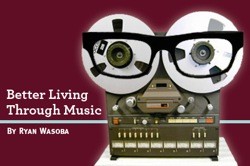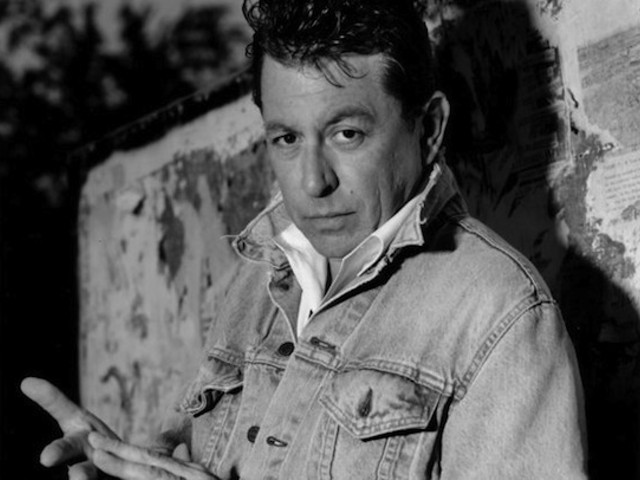Art and life co-habitate, informing, imitating, and enriching each other constantly. Each week in Better Living Through Music, RFT Music writer Ryan Wasoba explores this symbiotic relationship
This weekend, I am playing guitar at a wedding. I do not know the bride nor the groom beyond email formalities, and the material I'm playing is standard matrimonial fare - Pachelbel's "Canon In D," Mendelssohn's "Wedding March" and so on. There's nothing specific or personal about what I'm doing that necessarily qualifies me over any other musician. I rarely play gigs, but this is a gig. Nearly every other time I've played music in public has been a show. Musicians are often sorted by what instrument or what style they play, but nothing separates musicians more than the mentalities of gigs and shows.
As the names would imply, a gig is a job and a show is a performance. Playing covers for four hours at Fast Eddie's on a Friday night is a gig. Playing your own songs for thirty minutes at Fubar on a Tuesday half an hour after doors open is a show. Musicians usually make money during gigs, and rarely expect to be paid at shows. You could stop reading here and conclude that gig musicians do it for the money and show musicians do it for the art, but that would be a gross oversimplification.
99 percent of the people I know who support themselves making music do so primarily by playing gigs, and that is assuming I know exactly 100 working musicians. What they accomplish is pretty amazing, being able to adapt to so many situations and memorize so many songs in detail. Playing drums in a wedding band involves knowing tempos, song structures, and crucial breaks, not to mention the required stamina. You can easily fudge the numbers on your own material, but nobody's going to let that slide when you're playing "Don't Stop Believin.'"
Inversely, if somebody put a gun to a few of these musicians' heads and told them to write a great song, we'd have some blood spatter to clean up. On the plus side, I can recommend a great funeral band.
Much of the conflict between show-ers (hyphenated to not look like showers) and gig-ers (hyphenated to distinguish between giggers, or frog hunters) sprouts from jealousy. The workload for show musicians is huge. They write the songs, rehearse the songs, book the shows, promote the shows, and receive a massively disproportionate amount of money compared to their gigging brethren. The jealousy gig musicians harbor for show musicians is ideological. Show musicians get to express themselves creatively, use performance as an emotional release, and receive credit for the content as well as the execution. Gig musicians are often unwilling to put in the time to assemble an artistically viable band when they could use that time to make another few thousand dollars playing corporate parties.
The grudges between the camps revolve around money, but not in a literal play-for-money kind of way. The successful gigging musicians I know tend to share a similar attitude: 'Tis better to make money by playing music than to make money by working a crappy job. Some show musicians completely separate money and music, often as an extension of their aesthetic. I can relate to both, but I must admit that playing bass on "Don't Stop Believin'" is more fun than working the front desk at a hotel.
The gig and show mentalities boil down to the question of how music fits into one's life. For some, music is so personal that doing anybody else's material feels like a lie. For others, music is a shared experience of entertainment, and facilitating this function is a rewarding way to make a buck. Thinking along these terms, I cannot judge which archetype loves music more.
Although I rarely play gigs, I rarely play shows either. When I think of where music fits into my life, I don't always know the answer. But for now, I have no problem chameleoning myself between a show musician and a gig musician. Somebody's going to play that wedding this weekend. Somebody's name is going to be on the check, so it might as well be mine.






